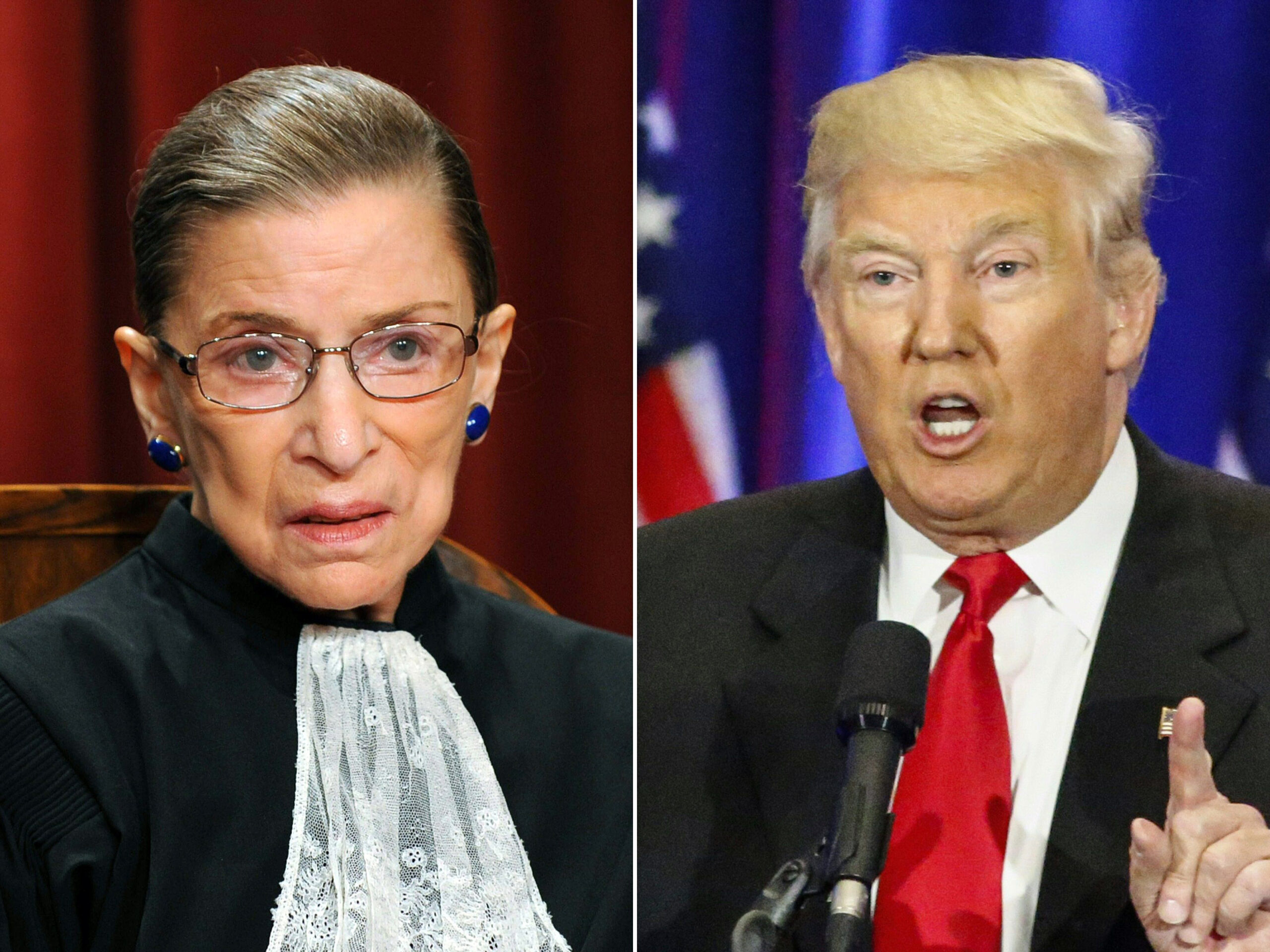CON: Trump shouldn’t nominate new justice before November

Due to the death of 87-year-old Supreme Court Justice Ruth Bader Ginsburg on Friday, a chair has opened on the high court.
Weeks away from the 2020 presidential election, the Senate must decide whether or not it will wait to start the Supreme Court nomination until after the election is decided.
If the Senate decides to wait, the winner of the election will be able to make the nomination. If not, President Donald Trump is guaranteed the proposal.
Many in favor of Trump are asking his administration to nominate the court’s next justice as soon as possible and hoping the Senate will vote on his nominee.
Despite the fact that the Constitution states the president must nominate Supreme Court justices, nowhere in the almost 250-year-old document does it specify the process of nominating a justice during a presidential election.
The process of nominating a justice would best be determined by what Senate Majority Leader Mitch McConnell dubbed the “Biden Rule.”
In 1992, the Senate voted against allowing former President George H.W. Bush to nominate a new justice before the general election. This was decided after then-Delaware Senator Joe Biden gave a speech on the Senate floor arguing against making the decision before Election Day.
“Once the political season is underway, and it is, action on a Supreme Court nomination must be put off until after the election campaign is over,” Biden said.
McConnell later cited this rule to prevent former President Barack Obama from nominating a new justice in 2016 before the presidential election. The Senate agreed, forcing the nomination to be halted until after the next president had been inaugurated.
Now, McConnell has seemingly flipped his opinion and said on Monday that Trump should be able to nominate a new justice before the election.
“The Senate has more than sufficient time to process a nominee,” he said on the Senate floor.
The difference between the current blockade and the one that took place in 2016 is that the Senate refused to vote on Obama’s nomination around 11 months before the general election.
The timeline alone should be telling of how the Senate should vote. Eleven months is a lot more time to have a vacant seat on the Supreme Court than the 41 days we have until the 2020 presidential election.
Not only would halting the nomination benefit those who oppose Trump, but Republicans could reap the benefits of keeping Senate seats if the new judge isn’t appointed before Election Day.
The Republicans’ most at-risk senators, Susan Collins of Maine and Cory Gardner of Colorado, are trying their hardest to win over Democrat-leaning swing voters in their states.
The Republicans can afford to lose only two seats in the Senate without losing their majority come November. Halting the Supreme Court nomination until after Nov. 3 will alleviate the pressure the Republican Party has in keeping the Senate seats red because unsure voters could support Democractic senate candidates in order to potentially balance the legislative and judicial branches.
For those on the opposite end of the political spectrum, a nomination by the Trump administration could be detrimental to those who have benefited from many of Ginsburg’s more liberal court decisions.
Trump’s nominee, who would most likely be a conservative woman according to CNN, may not provide the same security for women and minorities as Ginsburg did during her time on the high court. The Supreme Court has already started to take on cases that have the potential to alter discrimination laws for the LGBTQ+ community, like making it harder for same-sex couples to adopt children and transgender people to get medical attention, according to NPR and the New York Times.
Trump’s supporters pushing for the nomination of a new justice is not reason enough to allow him to do so. To confirm a nomination would go against precedents set by both Democrats and Republicans at one time or another. It could cost Republicans Senate seats and could have long-term effects on important issues Ginsburg so passionately stood up for. The Senate should not vote on a nominee until after the general election.







